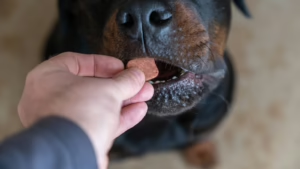We talked to ReadiVet’s Chief Medical Officer, Dr. Ben Clemmett, to understand what’s happening and what pet owners should know.
Q. Where is this happening?
A. While cases have been reported in the South, it seems to be more prevalent across midwest and northern states. To date, 16 states have confirmed cases according to the Louisiana State University School of Veterinary Medicine.
Q. What is it? The simple answer is, we don’t know yet.
A. The best and most trusted resource for information is always going to be the American Veterinary Medical Association (AVMA), here’s the most recent update.
Beware of other organizations trying to spread fear and unclear information. There are more than 10 known respiratory pathogens that cause illnesses in dogs. We need to understand more details before speculating.
Q. Okay, so what do we do until we know more?
A. Keep in mind that not every dog is going to have the same outcome. Many, if not most, may have mild cases, where some will have more severe symptoms. If your dog is coughing, sneezing or having trouble breathing – you need to take it seriously and contact your veterinarian to discuss the best course of action.
And, it’s best not to jump to conclusions. Canine Infectious Respiratory Disease Complex (aka kennel cough) and the regular flu are common as well. The AVMA has this great resource on kennel cough you can reference.
Q. What if I notice a cough? Should I assume the worst?
A. No. Contacting your vet when you notice symptoms is the best way to manage your dog’s needs. We have handy tips on our blog so you can determine what’s truly an emergency and what can wait for regular veterinary clinic hours.
In addition, here are the symptoms to look out for:
- Coughing
- Sneezing
- Labored breathing
- Nose or eye discharge
- Lethargy
- Decreased appetite
Q. What can I do to keep my pet safe?
A. There are 4 ways to keep your pet safe:
- Make sure your pet is up-to-date on all vaccines. There are vaccines available for a number of viruses and bacterial infections such as influenza, Bordetella, parainfluenza, adenovirus and distemper. Check with your vet and book an appointment if it’s time for your dog to be vaccinated.
- Do not share food or water bowls with other dogs. Take your own bowl if you’re out on a walk with your dog and they need some water. Avoid those public water bowls, which are a very easy way for germs to spread.
- Avoid dog parks and community areas where a lot of dogs congregate and can spread harmful germs.
- Arm yourself with information if you need to board your pet. We know with the holidays, many people are boarding their pets. Don’t hesitate to ask and understand the protocols that each boarding location has in place for reducing risks where realistically possible.
As we learn and know more information, we promise to update all our ReadiVet clients and community members.




